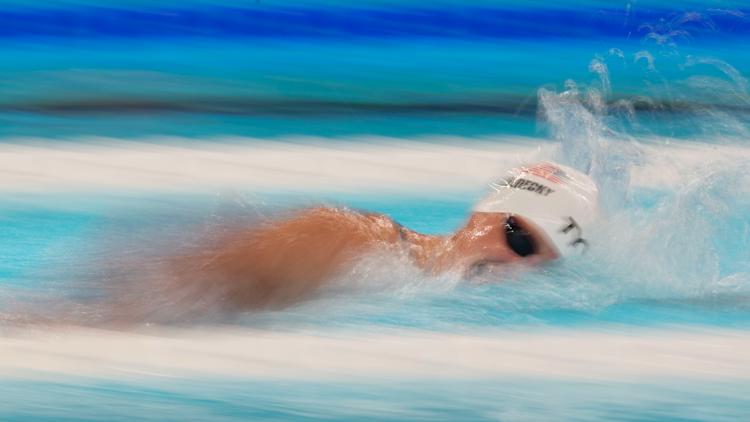JACKSONVILLE, Fla. — As was discussed at length in the movie 'Wedding Crashers,' remember rule 76.
"No excuses, play like a champion."
THE QUESTION
So, is there any correlation between a shallower pool and no extremely fast swims?
THE SOURCES
Olympian Martín López-Zubero
Director of Aquatics at The Bolles School in Jacksonville Peter Verhoef
THE ANSWER
WHAT WE FOUND
"It's a meter shallower than what they're used to," Martín López-Zubero told First Coast News.
Zubero currently is the aquatics director at Episcopal School in Jacksonville. He won a gold medal in the 200-meter backstroke at the 1992 Barcelona Olympics and was a world record holder.
That extra meter is equivalent to roughly three feet. The Olympic pool in Paris is roughly 6-feet deep, with nine feet being what most swimmers there are accustomed to.
Zubero's experience, and lifetime in the pool, means he understands how pool depth can affect swimmers, especially the backstrokers.
"The swimmers with their arms and legs are creating a lot of waves, and those waves will go down to the bottom of the pool and bounce back up," Zubero said of potential turbulence created in a shallower pool.
"When they're showing the underwater footage and showing the starts, it looks like they're about to hit the bottom of the pool, so I think that messes with your mind a little bit," Zubero continued.
This isn't really a question of fairness. All the swimmers have to swim in the same pool and have to race against each other. So, the shallow pool can't be blamed for getting a medal or not.
But, it may explain why no world records have been broken in the pool at the Paris Games.
In the Tokyo Olympics, six world records were set. Furthermore, there were eight in Rio and nine set at the London Games.
"It doesn't seem like that big of a difference," Zubero said. "But, when it comes down to hundredths or tenths of a second on every 50 meters, it does add up."
And there are other factors that could come into play as well.
The Tokyo Olympics were delayed from 2020 to 2021 because of COVID protocols, which means there were only three years between Olympic cycles.
Zubero and The Bolles School Director of Aquatics Peter Verhoef agree that even the slightest change in training timing and cadence could impact world record swims.
"This has been the hardest games to qualify for in history," Verhoef told First Coast News. "Many swimmers had to go all in just to make it to Paris, and that leaves little room to improve significantly."



